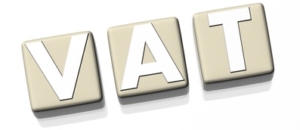Do you trade with the United Kingdom, or transport goods to/from Europe via the UK? Then you will need to consider the impact of Brexit on your organisation and put in place an action plan to ensure you are best prepared for when the transition period ends on 31st December 2020.
Supply Chain
Review your supply chain. Map the movement of goods into and out of the UK and goods going to and from Europe via the UK, to understand the potential for disruption caused by Brexit (possible delays, clearance requirements, additional checks on goods etc.) Consider actions you can take to prevent this disruption.
Customs Clearance
If you intend to import/export goods to and from the UK, you will need to be registered with Customs. Customs declarations will be required in order to move the goods through the border.
- Ensure you have an Irish Customs registration number- ‘EORI number’ beginning with IE
- You will also need a UK EORI number beginning with GB
- Engage with a customs clearance agent/broker to lodge Customs declarations on your behalf.
Customs Duty
Customs Duty will apply to the import of many goods from the UK into Ireland and vice versa. It is non recoverable and is an additional cost to the business.
- Ensure you correctly assign the correct commodity codes to the goods imported/exported. The codes will be needed in customs declarations and will determine the amount of duty to be paid.
- Consult with your agent/broker to see if any reliefs are available.
- Establish whether you need to obtain a ‘Deferred Payment Account’, this will allow you to import goods into Ireland from the UK and defer the payment of Customs Duties and Import VAT to the month following import.
Vat on Importation
The Irish Revenue passed a bill allowing for the “Postponed Accounting” for VAT on importation where businesses would no longer pay VAT at importation. You can instead account for VAT through the normal monthly VAT return resulting in a significant cash flow saving. However, they will introduce qualifying criteria for this provision over time. If you do not qualify, VAT (currently 21% for ROI) will apply to the import of many goods from the UK into Ireland and will be payable at the time of import of the goods into Ireland.
Product Certification
The area of product certification will change post-Brexit. UK notified bodies will lose their status as EU notified bodies and will not have any legal status in the EU. This means they cannot provide EU certification. If you rely on UK notified body, you must source an alternative notified body in the EU.
- More detailed information is available at www.nsai.ie/brexit
Exchange Rates
Currency/exchange rate exposures are a risk for businesses trading in foreign currency. You can take steps to help reduce your exposure.
- Consider Dual Invoicing
- Currency Hedging/Forward contracts
ERP Systems
Companies should assess the changes required to be made to their ERP/Finance systems and the time/cost that it will take to implement these changes.
For further assistance, please contact Edward Murphy | Partner | Head of Tax services.
For further information you can visit the below websites or call your local enterprise office.
www.gov.ie/brexit
www.revenue.ie/brexit
www.localenterprise.ie/brexit
www.prepareforbrexit.com

